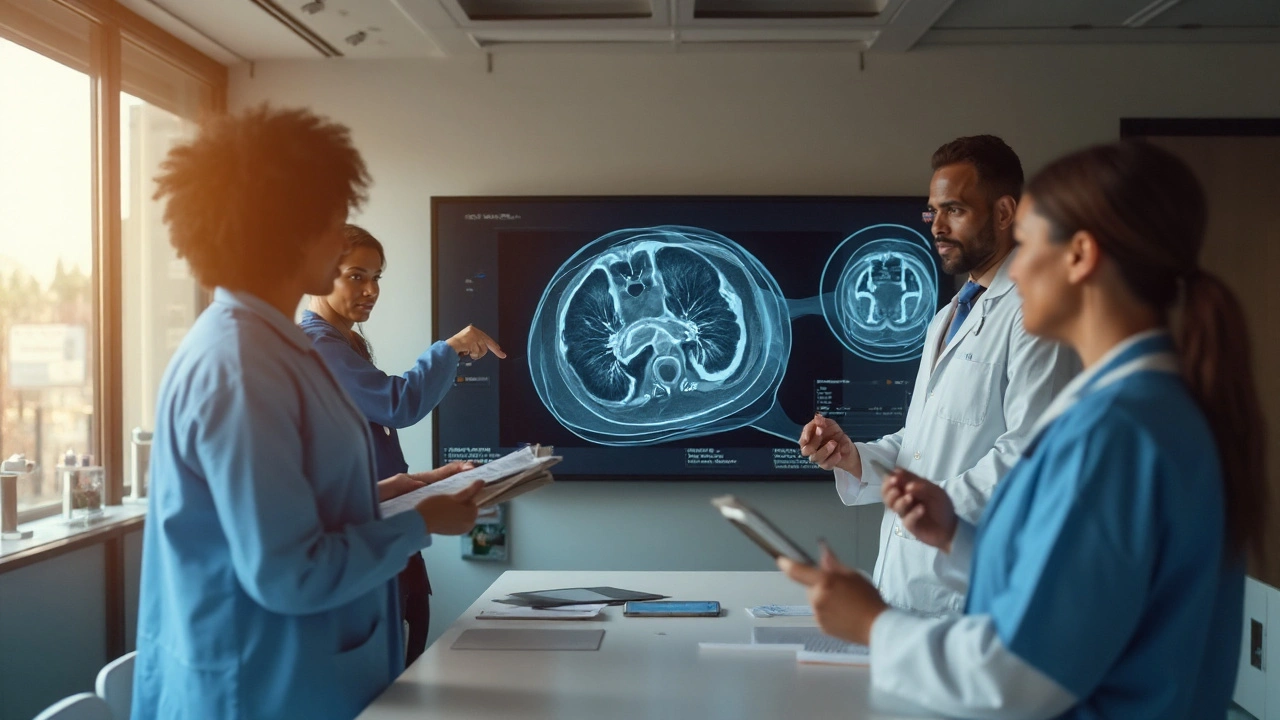Advanced RCC Care: What You Need to Know
If you or a loved one has been diagnosed with advanced renal cell carcinoma (RCC), the flood of medical jargon can feel overwhelming. The good news is that treatment options have expanded dramatically in the last few years, giving patients more hope and better quality of life. This guide cuts through the noise, showing you the most effective therapies, how to handle side effects, and practical steps you can take every day.
New Treatment Options Changing the Game
First‑line therapy for advanced RCC now often combines a checkpoint inhibitor (like pembrolizumab or nivolumab) with a targeted drug (such as axitinib or cabozantinib). The checkpoint inhibitor teaches your immune system to recognize cancer cells, while the targeted drug blocks the pathways cancer uses to grow. Studies show this combo can shrink tumors in more than half of patients and delay disease progression.
If you can’t tolerate the combo, doctors may suggest single‑agent immunotherapy or a different targeted agent. Drugs like lenvatinib, everolimus, or sunitinib work well for many people and have different side‑effect profiles, so you can find a match that fits your health.
Clinical trials are another route to consider. They give access to cutting‑edge therapies before they’re widely approved. Look for trials testing next‑generation immunotherapies, novel VEGF inhibitors, or even personalized vaccine approaches. Your oncologist can help you search registries like ClinicalTrials.gov for studies recruiting in your area.
Managing Side Effects and Daily Life
Advanced RCC treatments are powerful, but they come with side effects that can affect daily life. Fatigue, high blood pressure, diarrhea, and skin rashes are common. The key is proactive management:
- Blood pressure: Use a home cuff, track readings, and keep your doctor in the loop. Many targeted drugs raise BP, but medication adjustments can keep it under control.
- Gastrointestinal issues: Stay hydrated, eat small frequent meals, and consider over‑the‑counter anti‑diarrheal meds after checking with your pharmacist.
- Skin care: Gentle cleansers, moisturizers, and sunscreen can reduce rashes. If a rash gets severe, the doctor may pause treatment briefly.
- Fatigue: Light exercise, short naps, and a balanced diet help. Don't push yourself too hard; listen to your body.
Beyond side‑effect control, a strong support network matters. Join a local kidney‑cancer support group or an online forum where you can share experiences and pick up real‑world tips. Having someone to discuss lab results, appointment schedules, or just vent a frustration makes the journey less lonely.
Nutrition also plays a role. Aim for a diet rich in fruits, vegetables, lean protein, and whole grains. Limit processed foods and excessive sodium, especially if you’re battling high blood pressure from medication. Some patients find that a modest increase in omega‑3 fatty acids (found in fish or flaxseed) eases inflammation, but always check with your care team first.
Finally, keep a personal health journal. Note each medication, dosage, side effect, and how you feel each day. This log becomes a powerful tool during appointments, helping your oncologist fine‑tune the plan quickly.
Advanced RCC care is no longer a one‑size‑fits‑all approach. By staying informed about the latest drug combos, exploring trial opportunities, and actively managing side effects, you can take charge of your health and improve outcomes. Talk to your oncology team about which options fit your lifestyle, and remember that small daily habits—like proper hydration, gentle exercise, and a supportive community—can make a big difference on this challenging road.
About
Health and Wellness

